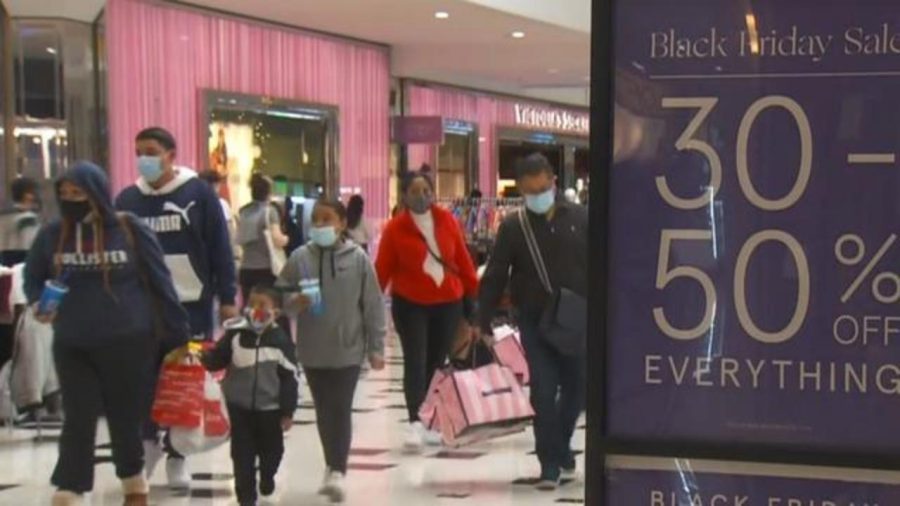Black Friday in the Time of COVID-19: What’s Changed
November 16, 2021
Thanksgiving brings joyous thoughts of family, friends, and Christmas. However, with this comes the worries of gift-giving and holiday shopping. Especially now, in the time of the on-going pandemic, Black Friday shopping has never been more hectic.
The supply chain backup will no doubt largely impact this year’s shopping holiday.
Due to the backup, consumers must take into account whether they will choose to shop online for Cyber Monday or in-stores for Black Friday. Both options have their own advantages and disadvantages, so when deciding how to shop this holiday season, it depends on your own personal needs and preferences.
For instance, by participating in Cyber Monday, it’s possible products will take longer than expected to ship with some items even being delivered after the holidays. On the contrary, when shopping in-stores, once the item is purchased, it’s yours to keep but you do run the risk of contracting COVID-19.
The CDC labeled shopping in crowded stores during the holidays a “higher risk” activity and suggested that people limit any in-person shopping. If choosing to shop in-store, it is important to wear a mask and try to social distance when possible, despite vaccination status.
Over the years Black Friday has slowly shifted to a week of great deals, then to a month of great deals, which is vastly different from what it used to be, “The Biggest Shopping Day of the Year” according to CNBC.
This year, in particular, most stores began to promote deals starting Nov. 1 in order to help stay relevant as compared to online shopping. According to data from NBC News in relation to last year’s Black Friday and Cyber Monday, the majority of people opted to shop online and this trend will continue this year as well.
Only a few days away on Nov. 26, stores prepare for another unique Black Friday.






